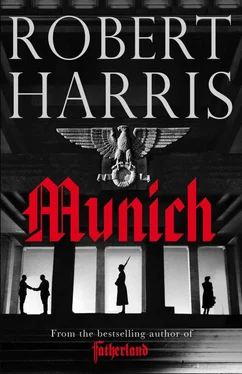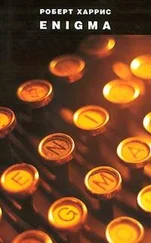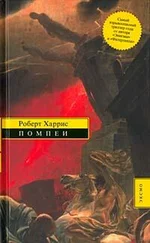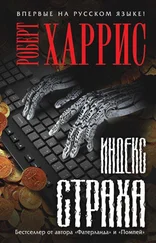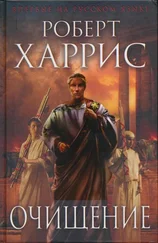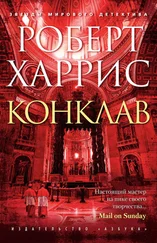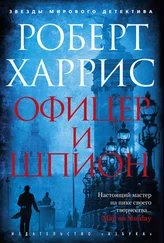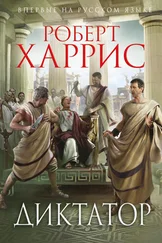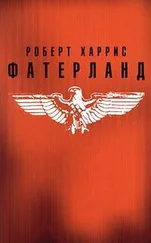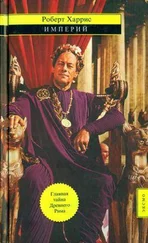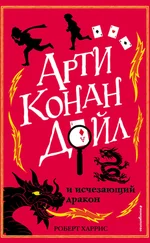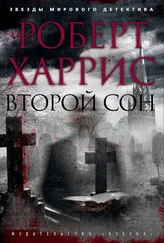‘Good evening, my dear Frau Winter.’
‘Good evening, Herr von Hartmann.’ She bowed her head with equal formality, as if he had paid her a great compliment.
‘Is he in?’
‘He’s with the Minister in the Chancellery.’
‘Ah.’ Hartmann was taken aback. ‘In that case what should I do with Chamberlain’s speech?’
‘He said you were to take it round to him immediately. Wait,’ she called after him as he turned to go, ‘what is that on your face?’
He stood obediently under the chandelier as she inspected his cheek. Her hair and fingers smelled of perfume and cigarette smoke. He could see strands of grey in her dark curls. He wondered how old she was. Forty-five? Old enough, anyway, to have had a husband who had died in the war. ‘Ink!’ she murmured disapprovingly. ‘ Brown ink. Really, Herr von Hartmann, you cannot enter the Chancellery looking like that. What if you bump into the Führer?’ She drew a white handkerchief from her sleeve, moistened the corner with her tongue and dabbed gently at his cheek. She stepped back to inspect the result. ‘Better. I’ll telephone to say that you’re on your way.’
Outside, the night was still warm. The pre-war street lamps along Wilhelmstrasse, set far apart, offered little isolated pools of illumination in the darkness. Hardly anyone was about. In the middle of the street a cleaner was shovelling up piles of horse shit left behind after the parade. The only noise was the scrape of his spade on the asphalt. Hartmann clutched the folder and walked quickly along the facade of the Ministry until it gave on to the railings of the Reich Chancellery. One of the big iron gates was open. A Mercedes was driving out. The policeman saluted. Hartmann couldn’t see who was in the back. As the car headed off in the direction of the Anhalter Bahnhof, he gave his name and department to the policeman and was waved through without a word.
Lights were on in the windows all around the courtyard: here, finally, was a sense of activity, crisis. Beneath the canopied main entrance one of the SS sentries carrying a machine gun asked to see his papers, then nodded him permission to enter the reception hall, where two more SS guards were standing, armed with pistols. Yet again he showed his pass and announced that he had come to see State Secretary von Weizsäcker. He was asked to wait. One of the sentries went over to a telephone on a table against the far wall. Hartmann made a mental note: two policemen on the gate, four SS-Schütze here, and at least another three he could see in the guardroom.
A minute passed. Suddenly the large double doors opened and a uniformed SS adjutant strode in. His heels clicked and his arm shot out in the Hitler salute, as precise and immaculate as a clockwork soldier. Hartmann returned the obligatory greeting. ‘ Heil Hitler. ’
‘Follow me, please.’
They passed through the double doors and across an endless tract of Persian carpet. The room smelled of the Kaiser’s time: sun-faded old fabric, dust and beeswax. One could imagine Bismarck stamping across it. Watched by another SS guard — what was that: the eighth? — Hartmann followed the adjutant up a marble staircase, past Gobelin tapestries, to the second-floor landing, through a pair of doors and into what he realised, with an accelerating pulse, must be the Führer’s private apartment.
The adjutant said, ‘May I have that? Wait, please.’ He took the folder, knocked quietly at the nearest door and slipped inside. For a moment before it closed Hartmann heard voices, then the murmured conversation was cut off. He glanced around. The room was surprisingly modern, tasteful even — decent paintings, small tables with lamps and bowls of freshly cut flowers, a rug on a polished wooden floor, simple chairs. He was not sure whether he should sit or not. He decided not.
Time went on. At one point a handsome woman in a starched white blouse carrying a pile of papers entered the meeting and left almost immediately, empty-handed. Eventually, after a quarter of an hour, the door opened again and a sleek silver-haired man in his mid-fifties emerged, a Nazi Party badge in his lapel. This was Baron Ernst von Weizsäcker, although in the spirit of these egalitarian days he had dispensed with his title at roughly the same time he had acquired the badge. He gave Hartmann an envelope. ‘Thank you for waiting, Hartmann. This is the Führer’s reply to Chamberlain. Please take it immediately to the British Embassy and give it to either Sir Nevile Henderson or Mr Kirkpatrick personally.’ He leaned forwards and added confidingly, ‘Draw their attention to the final sentence. Tell them it’s in direct response to tonight’s broadcast.’ And then, more quietly, ‘Tell them it wasn’t easy.’
‘Weizsäcker!’ Hartmann recognised Ribbentrop’s peremptory voice calling from the room. The barest hint of a grimace flicked across the State Secretary’s smooth features, and then he was gone.
The British Embassy was less than a five-minute walk away at the northern end of Wilhelmstrasse, just beyond the Foreign Ministry. As Hartmann waited for the police sentry to open the Chancellery gate he examined the envelope. It was addressed, in Weizsäcker’s hand, to His Excellency Sir Nevile Henderson, Ambassador of Great Britain ; it was unsealed.
‘Goodnight, sir.’ The policeman saluted.
‘Goodnight.’
Hartmann walked a little way up the wide street, past the silent darkened windows of the Foreign Ministry, and then casually — so casually that if anyone had been watching him they would have thought his behaviour entirely natural — he turned into the main entrance. The night porter recognised him. He mounted the carpeted steps between the stone sphinxes, hesitated, then turned left into the deserted corridor. His footsteps echoed off the stone floor, the lime-green plastered walls, the vaulted ceiling. On either side the doors were closed. About halfway down was a lavatory. He let himself in and turned on the light. His reflection in the mirror above the washbasins appalled him — stooped, furtive: in every respect suspicious. He wasn’t really cut out for this sort of business. He went into one of the cubicles, locked the door, and sat on the edge of the toilet.
Dear Mr Chamberlain,
I have in the course of conversations once more informed Sir Horace Wilson of my final attitude...
There were perhaps seven paragraphs, some of them long. The gist of it was belligerent: that the Czechs were stalling for time, that their objections to immediate German occupation of the Sudetenland were contrived, and that Prague was working to achieve ‘a general warlike conflagration’. The final sentence, of which Weizsäcker was so proud, did not strike him as offering much hope for peace:
I must leave it to your judgement whether, in view of these facts, you consider that you should continue your efforts, for which I once more sincerely thank you, of bringing the government in Prague to reason at the very last hour.
The typed letter was signed with a scrawled Adolf Hitler .
He reached von Weizsäcker’s office just as Frau Winter was locking up to go home. She was wearing a fashionable wide-brimmed hat. She stared at him in surprise. ‘Herr Hartmann? The State Secretary is still at the Chancellery.’
‘I know. I hate to ask you this — I wouldn’t if it wasn’t important.’
‘What?’
‘Can you copy this, quickly?’
He showed her the letter with its signature. Her eyes widened. She glanced up and down the corridor, then turned and unlocked the door and switched on the light.
It took her fifteen minutes. He kept a lookout in the corridor. She didn’t say anything except towards the end. ‘He seems determined to have a war.’ She said it matter-of-factly, without looking round from her typewriter.
Читать дальше
